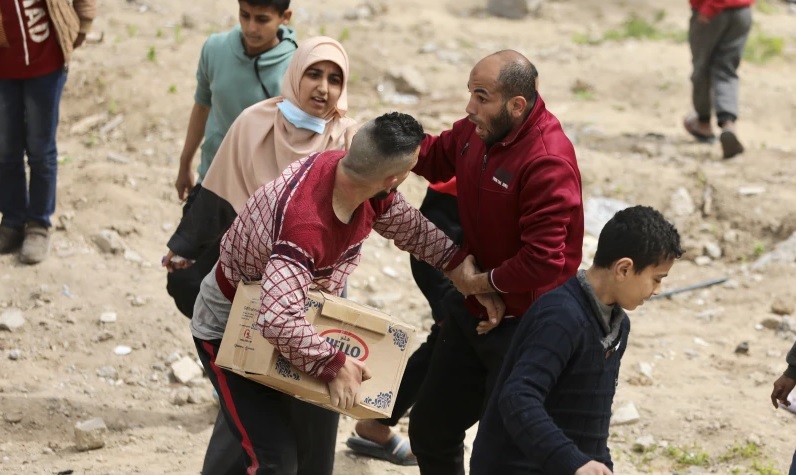Sixteen evacuation orders by Israel’s military this month have squeezed Gazans into even smaller areas of the territory and the latest has shut the U.N. humanitarian operations center. However, the U.N. agency helping Palestinian refugees, known as UNRWA is still providing health care and other assistance.
As a result of the orders, several hundred thousand already displaced Palestinians have been forced to move again, and the humanitarian zone declared by Israel has shrunk to about 11% of the entire Gaza Strip, Sam Rose, the senior deputy field director for the U.N. agency for Palestinian refugees told reporters Monday.
“And this isn’t 11% of land that is fit for habitation, fit for services, fit for life, really,” Rose said in a briefing from Gaza,
He said it’s precisely in this environment with lack of access to aid, services, water and health care that polio has recently reemerged in Gaza, “with a small number of cases that could spread very rapidly.”
Rose said a U.N. campaign to vaccinate 95% of children under the age of 10 is scheduled to start on Saturday and involves over 3,000 people, including 1,000 from UNRWA, the largest primary health care provider in the Gaza Strip.
He expressed hope that humanitarian pauses needed for the campaign will be heeded by Israel, Hamas and other militants.
A senior U.N. official said Israel’s latest evacuation order on Sunday included the U.N. operations center in Deir al-Balah, which was forced to close on short notice. The official, speaking on condition of anonymity because of the sensitivity of the issue, said the U.N. has been in contact with Israel about the latest order and improving humanitarian operations.
Rose said UNRWA services are continuing with national staff, estimating that 15,000 Palestinians received health services across Gaza on Monday.
But he stressed that the ability of the U.N. humanitarian system to operate in Gaza “is becoming increasingly difficult.”
He said an estimated one million Palestinians a month aren’t getting the food they desperately need because of obstacles at crossing points, with only about 100 trucks with aid getting into Gaza every day instead of the 500 needed.
Source: AP






